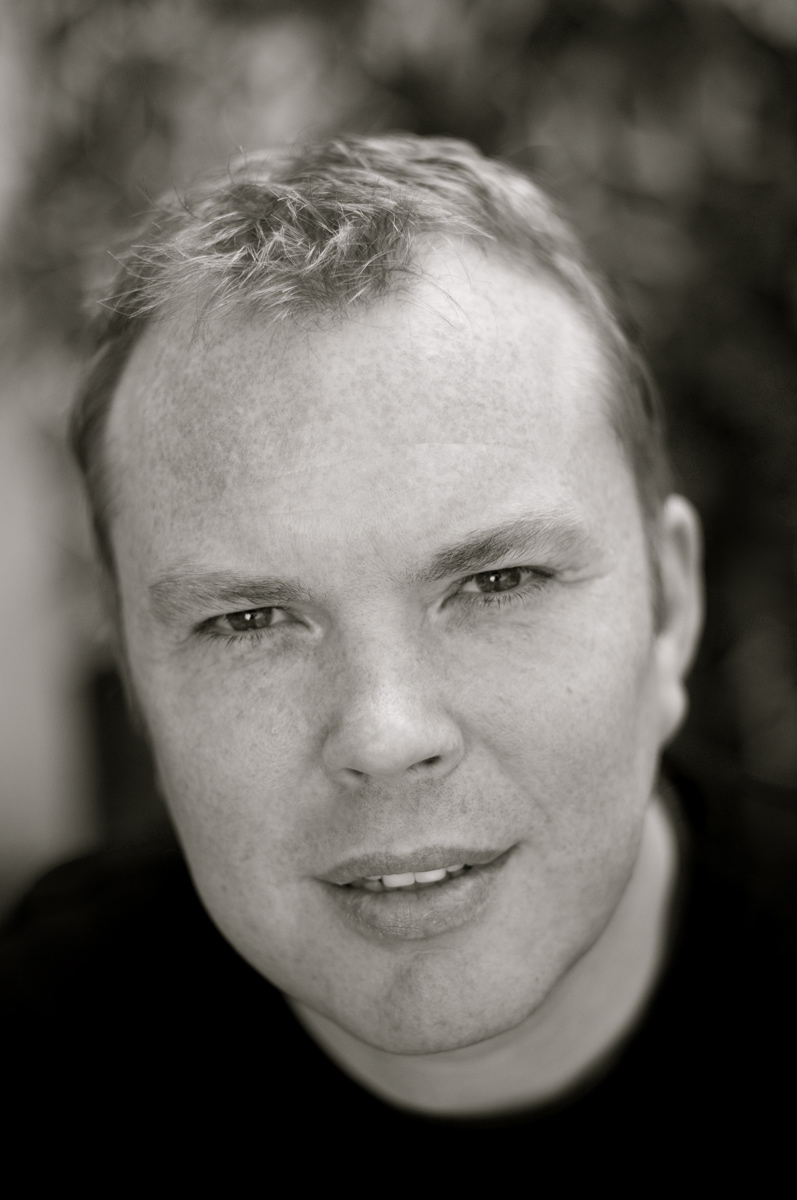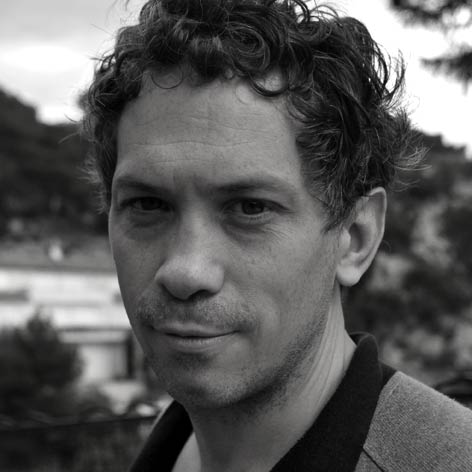ASK & DISCUSS
INDEXAdaptation
12 years, 3 months ago - Max Kinnings
As research for a course that I'm giving in adapting for the screen, I'm studying what makes a good screen adaptation. The usual literature on the subject - Linda Seger, William Goldman etc - is really useful but I'd love to hear from Shooters regarding any personal anecdotes regarding successes or failures. And also what you consider to be good, bad or indifferent adaptations. I'm particularly interested in novel to feature film adaptations not least because I'm working on the adaptation of my third novel, Baptism (the spec trailer for which is on my web site - address below). Would be grateful to hear your thoughts on the subject - however random!
Many thanks,
Max Kinnings
mail@maxkinnings.com
www.maxkinnings.com
Only members can post or respond to topics. LOGIN
Not a member of SP? JOIN or FIND OUT MORE
12 years, 3 months ago - Paddy Robinson-Griffin
I just lost an option I wanted (I won't name it as I'll badger the author again in a year), but the novel was written very linearly and visually - extremely direct adaptation.
I liked the adaptation of 'The Constant Gardener' (Le Carré) for all but the love montage. Big problem, the story requires younger woman to fall in love with older bloke, and do it in a condensed frame. The director tried to montage it, but it really failed. Love and convincing relationships need screen time to develop I reckon.
12 years, 2 months ago - Max Kinnings
Thanks for this. Totally agree re: montage. Can be a godsend for certain aspects of an adaptation in my experience but can also compromise the narrative. And, as you say, particularly so when used to frame a developing relationship. But I suppose it's difficult to think of an alternative without making big structural changes and completely reframing the film.
I doubt it could ever be collated effectively but it would be interesting to see stats of montage and its use in adaptations as opposed to original screenplays. I would suspect you'd see a much greater use of it in adaptations. How else to compress the large narrative sweeps of a novel?
12 years, 1 month ago - Max Kinnings
Hi Josh, this looks like a fascinating project. Good luck with it. Re: an adaptation standing on its own as a great film and still reminding people of what they loved in the original, I came across this quote from (the oft-maligned but eminently quotable) Robert McKee: “If reinvention deviates radically from the original… but the film is excellent, the critics fall silent. But if you butcher the original… and do not put a work as good or better in its place, duck.”
12 years, 2 months ago - Max Kinnings
Thanks for this. Your point about where a writer's loyalties lie is a very good one. I think sometimes the writer of an adaptation might be in danger of trying to keep a novelist (particularly if it's a big name novelist) happy when really, the only loyalty the screenwriter should have is to the audience of the film.
There are a number of notable examples of novelists being unhappy with adaptations of their novels. One of the most well known is Stephen King and his attitude towards Stanley Kubrick's adaptation of The Shining. In my opinion, the story of Kubrick's Shining is far more effective (and unsettling) than King's. King was notoriously hostile to Kubrick's film version but, as a writer who has had his work adapted numerous times, he can be very generous to the adapter of his work. On the DVD extras of the The Mist, there is a discussion between King and Frank Darabont in which King says that he thinks that Darabont's departure from the original story, actually made the story better.
12 years, 2 months ago - Max Kinnings
Thanks for this. Sounds like a familiar story! I think, for many of us, our first scripts are for producers who turn out to have no money! Still, I guess it gives us the impetus to actually write a first draft. Sounds like your producer had the standard perception of novelists that we're attached to every word of the source material and will prove extremely possessive when it comes to losing and/or changing parts of the novel. Not so in my experience. Novelists are far more pragmatic and understand that in order to make an effective screenplay, lots will need to change. Story is absolutely paramount in a screenplay and while it's important in a novel, it may often be secondary to character and prose.
12 years, 1 month ago - Max Kinnings
I haven't seen the film in question but I agree completely with what you say about stories and ambiguity. That is one of the wonders of the novel as an art form. That ambiguity can take centre stage. But not so in a movie - or a mainstream movie. With all the money involved and the inherent risk of alienating an audience - and before it even gets to that - the producers, financiers, distributors etc - ambiguity is a no-no.
12 years, 1 month ago - Max Kinnings
This is a very good point. From a practical business sense, adapting another writer's work is a precarious situation which provides for little sense of control. As writers, most - if not all - of what we write becomes a labour of love. Awful therefore, if you end up being unable to do anything with that gem of a script that you've worked long and hard on. I feel your pain on that one, Stephen!
12 years, 2 months ago - Max Kinnings
I haven't as yet read the book or seen the film but I did read the big article in Vanity Fair about the troubled production. I think there seems to be something of a challenge for certain writers and directors when a novel is thought of as unfilmable. This is particularly true of David Cronenberg's Naked Lunch, his adaptation of the William Burroughs' novel. Ever since its publication in the early sixties, filmmakers had considered trying to adapt The Naked Lunch but had never managed to get it off the ground. What Cronenberg did so effectively was take the hallucinatory fragmented lunacy of the source novel and transpose it onto the life and times of William Burroughs himself. In so doing, he managed to (in part) capture the essence of the book and William Burroughs' oeuvre generally.
12 years, 2 months ago - Jan Caston
Endings only truly work if they are also beginnings. Some part of the storyline has to be left dangling when a film/TV prog ends. The characters may walk off our movie screens and out of our sight but they should go on to live another life somewhere for the audience to be content with the ending.
That's what happens when the guy gets the girl and they live happily ever after? Or the hero lives on to fight another day. Remember those wonderful WW2 films which end with a shot of the sky (heaven) or of the wife turning back into the house to the playful children.
Completedness without every really ending. That's what makes a good ending.
12 years, 2 months ago - Ed Griffiths
There is only one possible way, of course, to end a script/movie. Any movie/script. A major character looks off into the distance at the very end and whispers
'Madness...it's all madness!'
Roll credits...
12 years, 2 months ago - Dave Herman
Endings are often difficult. Many great classic novels have tragic endings, which is tough to sell as a movie and tough to alter in an adaptation (if you want to stay true to the novel).
I was recently asked to write a treatment based on a novel by a minor celebrity (that was the reason the novel was optioned, because the name of the minor celebrity would supposedly sell the movie). However, the ending was an cringeworthy, self-piteous anti-climax. A cop-out, basically. The only way I could see to salvage a movie from this novel was to end the story very differently. My treatment wasn’t well-received.
As we all know, the ending is what a movie is all about. It states the ‘moral lesson’ the main character has learned (I’m talking mainstream movies here, not David Lynch). And it only works by virtue of everything leading up to it.
So if the ending of a novel is not something that can obviously translate to the screen or something that can be changed without violating the spirit of everything leading up to it, then beware.
12 years, 1 month ago - Joshua Douglas-Walton
I'm currently adapting Tolstoy's The Kreuzter Sonata- we've just launched an Indiegogo for it - http://www.indiegogo.com/projects/the-kreutzer-sonata (shameless plug, I'm sorry).
I think any good adaptation has to maintain what was so compelling about the original text (novel, comic, play et al). Whether it's a character, a style of narration (turned into voiceover), theme, tone and of course the plot.
With The Kreuzter Sonata, I've set it in the present day and made some of the main character's attitudes to women more palatable for 21st century tastes. It has been a struggle trying to strike a balance been including as much stuff from the original novella and including my own ideas but I have enjoyed the experience.
Ultimately if an adaptation can stand on it's own as a great film and still remind people what they loved about the original then you've got yourself a winner.
Josh
12 years, 3 months ago - George Graham
There are a lot of technical issues that an adapting screenwriter has to solve. Typically things like straightening out chronology and externalizing interior monologue.
Before that though, comes the story. Does the story in the novel really work for a 2 hour film? Will it require minor or major changes to make it work? Is the evocative prose, which reads well on the page, concealing structural problems or weak character psychology. I have found this to be necessary but risky territory. If I don't fully believe in the characters or the way the story has been told, then I start picking the whole thing apart. I may end up not being left with much which can be unpleasant. But it's better than turning in a bad script.
I find it's worth being clear to whom my loyalties lie. The novelist? The novel? The best film I think can come from the material, however loosely I interpret it? Presumably, there will be others, Producers say, who can give some guidance on this. I don't believe there's fixed right or wrong.
There are different schools of thought in adaptation, ranging from slavishly copying to using the original as an inspiration and then forgetting about it. The film of The Unbearable Lightness of Being junked the novel's philosophical narrator whom many consider to be the its best feature. I think it's a good film, but I gather Milan Kundera vowed never to permit another film adaptation of his work after that.
12 years, 2 months ago - Max Kinnings
Many thanks for the responses to my original post on Friday. These have definitely given me plenty of food for thought regarding adaptation. Would love to hear any further thoughts that any other shooters might have.
12 years, 3 months ago - Marlom Tander
Years ago I wrote a still unpublished novel. It landed on a Directors desk. He said he loved it and that we should meet.
We met. He asked me how I would see turning it into a movie.
I said I'd dump all the internal head stuff, combine 2 particular characters into one, lose an entire chunk of the plot and turn a wry look at money laundering with some action, into a wry action movie with some money laundering.
He looked at me and said "writers don't talk like that. They always want everything in the book, in the film".
Which surprised me because, as I said, "but books and films are different".
The story is what matters, and both the book and the film told the same underlying story.
If I was adapting someone else's work, I'd be willing to junk anything so long as I stayed true to the story, or, for complex novels, the aspect of it that suited a 90-120min movie.
It became my first ever script, but it turned out the Director didn't have any money. Welcome to the wonderfull world of movie making :-)
12 years, 1 month ago - Max Kinnings
A big thanks to everyone who has responded to this discussion regarding screen adaptation. There have been some excellent points made. The more research I have carried out into the subject, the more I realise that script development being what it is, all screenwriting is an adaptation of sorts. Every time we produce a screenplay, it is adapted either from earlier drafts or documents or discussions or thoughts and ideas. Adapting a novel is really no different. It's all a matter of compressing, condensing, cutting, combining, expanding and ultimately doing whatever it takes to find the story that will resonate with an audience. While this process of research has been carried out primarily on account of a course I'm teaching in a few days time (details on my blog below), I'm certain it will be of use as I develop my own novels for the screen.
Thanks again,
Max.
www.maxkinnings.com
12 years, 2 months ago - Max Kinnings
Very good points from Dave Herman and Jan Caston re: endings. It's probably in the ending of stories that films and novels vary the most. "Completedness without every really ending" - excellent. Even if it's the baddy/monster who gets to carry on, that's OK; we hate to face up to finality in anything. Too close to the reality of life, I guess. And as for Ed Griffiths' point, I agree, you can never have too many endings in which a character says: "Madness...it's all madness!'. It's what we all think deep down.
12 years, 2 months ago - davanna cimino
Regarding endings: I just watched The Macomber Affair on TCM based on the Hemingway classic story The Short Happy Life of Francis Macomber. The endings were drastically different.Film version was Hollywoodified (or Hollywussified). It obviously pandered to the audiences desire (or perceived desire) to have loose ends tied up. The film ended on an uncertain note interms of what happens next; in the story, one was left with ambiguity of what went through Margot's head. In the film, she explains it all. The filmmaker wanted the Gregory Peck character to have really been in love with her, but in the story, he was a noble cynic, and there was no hint that he fell in love. (I think the filmmaker,Nunnally Johnson, needed that gloss of virtue to make the infidelity acceptable.) It made me think that -- just as in yesteryear -- mainstream films of today are no less bound by what are the perceived popular mores. IMO. more than un-completedness, what makes a story really intriguing is ambiguity.
12 years, 1 month ago - Louise Pennington
Just finished shooting THE LEFT-HAND PATH a short film (occult thriller) adapted from my novel 'Jessica's Lover'. 100k words into ten minutes, but it's all about keeping it really tight and knowing the story. Really knowing it.
12 years, 2 months ago - Stephen Potts
Further thoughts: the point about loyalty is well taken. I'd respond by saying that at a purely practical level you have to be loyal to whoever owns the option on the screen rights. If you are commissioned by a producer to adapt something you have to align with their vision of how it should be done. If you take a book to a producer and persuade them to option it and appoint you as the writer, the same is true, even though the original passion for the screen story is your own. And if you take a punt and option a book yourself, and adapt it youself, you are at the mercy of the author (or his representatives) when it comes to option renewal time. You can be left with an orphan script which you might be proud of but can do nothing with because you no longer hold the rights. I've been there.
12 years, 3 months ago - Paddy Robinson-Griffin
Oh, as the post invites thoughts, however random...
World War Z looks like the loosest adaptation of all time. It shares a name with the book, and approaching zero else. In fact the fact that it has had substantial resh^H^H^H^H pickups and delayed release by ~2yrs tells you that the first stab just didn't work. I suspect it was closer to the source material. Anyone I know who's read the source material has pretty much agreed 'That's unfilmable', looks like that may be the case. I heartily recommend the book FWIW - don't imagine it and the film bear more than a passing resemblance, but the book is actually really rather good.









